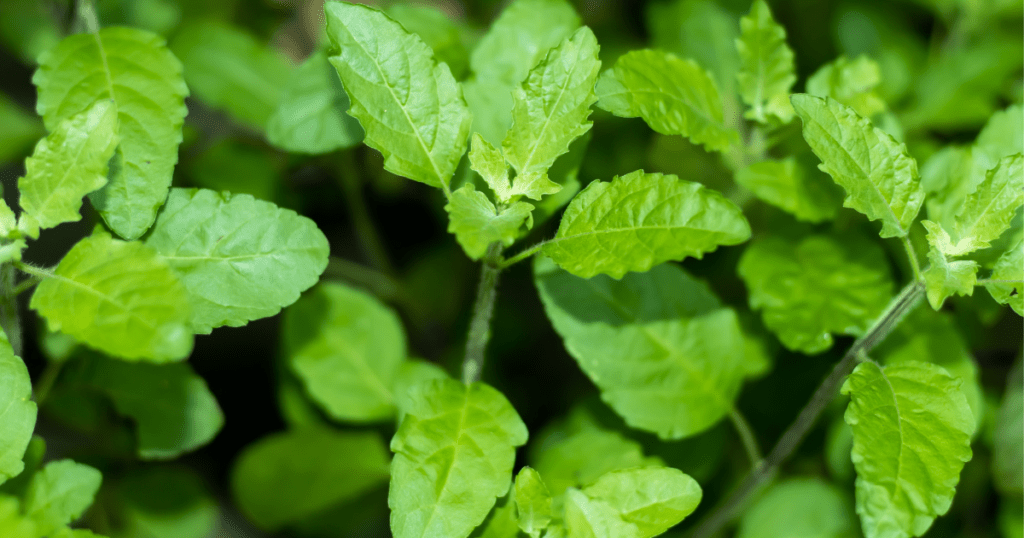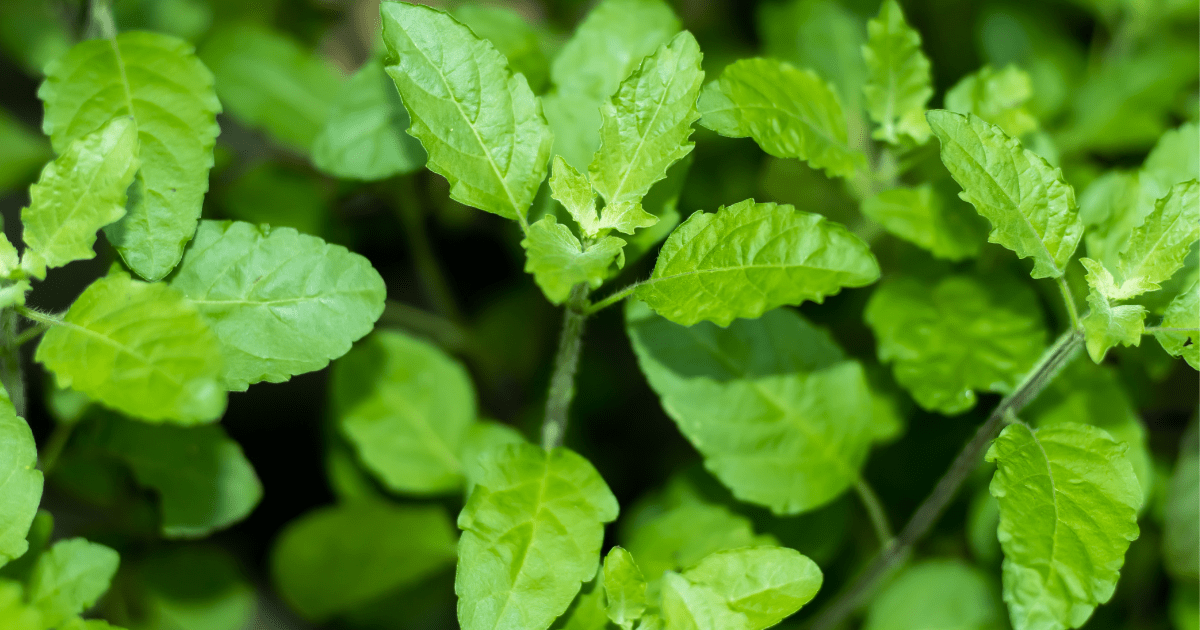Holy Basil: Discover the Ultimate Health Elixir
Holy Basil Unveiled: The Ancient Herb That’s Changing Modern Wellness Forever
Holy basil, belonging to the basil family, presents several potential health benefits and is significant in traditional medicine. It is vital to distinguish it from the culinary basil, scientifically termed Ocimum basilicum, as its proper name is Ocimum sanctum or Ocimum tenuiflorum. This herb is also known as tulsi, tulasi, and the Queen of Herbs. Recognizing holy basil is simple due to its distinct features, including deeply veined green leaves and pale purple flowers.
Originally hailing from north-central India, holy basil has a rich history of cultivation throughout Southeast Asia. The herb has since spread to regions such as Australia, the Middle East, and West Africa. Interest in holy basil is also rising in the United States and other parts of the world.

This article explores the various types of holy basil, its potential benefits, associated side effects, and risks. It also provides guidance on how to incorporate the herb into one’s routine and when it is advisable to seek medical advice.
Varieties of Holy Basil
The herb exhibits distinct varieties primarily characterized by the color of their leaves. The three most prevalent types are Rama or Sri Tulsi (known for its green leaves), Krishna or Shyama Tulsi (distinguished by its purple leaves), and Vana or wild/forest Tulsi (recognized for its dark green leaves).
Potential Health Benefits of the herb
Numerous studies suggest that the herb may offer diverse health advantages that benefit the body, mind, and overall well-being. These include properties such as antioxidants, antimicrobials, and antidiabetic effects. Furthermore, the herb is known for its ability to reduce skin and wound infections, mitigate stress, enhance metabolism. The herb also strengthen the immune system, safeguard the liver, reduce inflammation, and provide protection against radiation.
Rich in vitamins A, C, K, and minerals such as iron, zinc, calcium, and manganese, the herb particularly stands out due to its high vitamin K content. Vitamin K supports heart health, bone mineralization, digestive well-being, and cognitive function.
Therapeutic Uses of Holy Basil Tea
People utilize holy basil in various forms, including herbal tea, tinctures, and essential oils. It holds a prominent place in Chinese and Ayurvedic medicine. Because it addresses concerns related to the skin, respiratory system, gastrointestinal tract, and joints. It may help open airways, improve breathing, reduce stress and anxiety, and enhance dental health by reducing inflammation and plaque buildup.
Possible Side Effects and Risks
Although earlier reviews found no significant side effects associated with the herb, recent research suggests potential adverse effects with excessive consumption. These include potential impacts on fetal development during pregnancy, menstrual cycle irregularities, hypoglycemia (especially in individuals with diabetes), and potential effects on male reproductive gland function. Additionally, the active compound eugenol may lead to symptoms such as nausea, diarrhea, a rapid heartbeat, and liver damage.
Precautions and Risks
Despite its natural origins, the herb possesses medicinal properties, warranting caution when used for health purposes. It is important to consult a healthcare professional before combining the herb with pharmaceutical medications, as it can potentially induce drowsiness when taken alongside certain drugs. Pregnant and breastfeeding individuals should avoid the herb, and those attempting to conceive may want to exercise caution. Furthermore, individuals taking blood-thinning medications or anticipating surgery should avoid the consumption of this herb.
How to Use Holy Basil
The herb can be used in various ways, depending on the intended purpose. Options include brewing tea from the leaves, consuming the seeds or leaves, using seed oil orally or topically, and taking supplements in the form of capsules or pills. While holy basil oil has various applications, it’s worth noting that it is not listed as a generally recognized safe essential oil by the FDA.
Seeking Medical Advice
As dietary supplements, including the herb, are not subject to FDA regulation like pharmaceutical drugs, it is advisable to seek medical guidance before use. Healthcare professionals can provide dosage recommendations and assess the suitability of the supplement based on an individual’s medical history. In case of side effects, consulting a healthcare provider is recommended when using holy basil for health purposes.
Summary
Holy basil, with its millennia-old history of healing properties, offers potential physical and mental benefits. Research indicates its antioxidant and antimicrobial properties, although evidence regarding long-term side effects remains limited. Further studies are needed to confirm human benefits and determine optimal dosages, as most research has been conducted in vitro or on animals.
Sources:
Fernando, I. (2022). What to know about holy basil. Medical News Today.(https://www.medicalnewstoday.com/articles/holy-basil#benefits). Accessed September 6, 2023
Begum, J. (2022). Holy Basil Tea: Are There Health Benefits? WebMD. (https://www.webmd.com/diet/holy-basil-tea-health-benefits). Accessed September 6, 2023
Category
- Health Issues (72)
- Healthy Diet (48)
- Herbs for Health (11)
- Mental Health (33)
- Skin Care (20)

